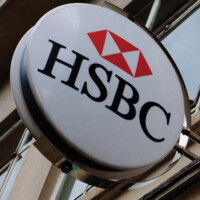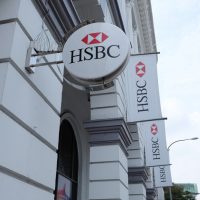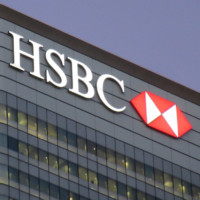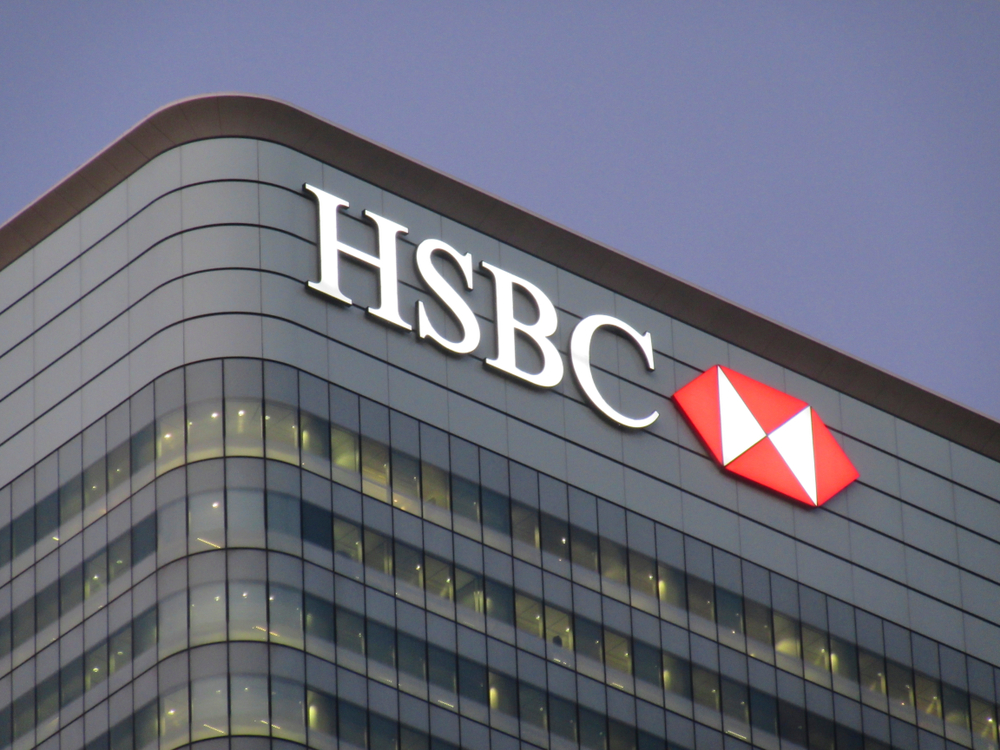


HSBC increases mortgage rates
Changes have been made to HSBC’s two-, three- and five-year fixed rates for first-time buyers, homemovers, remortgagors, buy-to-let (BTL) borrowers and international buyers.
For existing borrowers who are switching, the lender has increased pricing across two- and five-year fixed standard and fee-saver mortgages from 60% loan to value (LTV) up to 90% LTV.
Pricing for the two-year fixes ranges from 4.63% at 60% LTV for a standard product with a £999 fee, while the fee-free option is priced at 4.83%.
For the five-year fixes in the same range also at 60% LTV, the option for premier borrowers with a £1,499 fee has a rate of 4.29%, the standard option with a £999 fee is priced at 4.32%, and the fee-free option is priced at 4.45%.
For first-time buyers, the two-year fixed fee-free mortgage at 60% LTV is now priced at 5.08%, while the version with a £999 fee has a rate of 4.83%.
At 90% LTV, the respective rates are 5.68% and 5.23%.
Rate changes have also been made to products for existing customers borrowing more and energy-efficiency products for first-time buyers, homemovers and remortgagors.
HSBC joins a raft of lenders that have increased rates in recent days, including Barclays, Natwest and The Co-operative Bank. This comes after swap rates ticked up from 4.3% for the two-year swap, as of 22 March, to 4.57% as of 19 April.
The five-year swap rate rose from 3.75% to 4.06% over the same period.
Swap rates are also higher than they were in April last year, when the two-year swap was 4.47% and the five-year swap was 3.97%, as of 24 April 2023.



HSBC to lower rates
Changes have been made to HSBC’s residential existing customer switching, residential existing customer borrowing more, residential first-time buyer, residential first-time buyer energy-efficient home, residential homemover, residential homemover energy-efficient home, residential remortgage, residential remortgage energy-efficient home, and residential remortgage cashback ranges.
On the BTL side, its BTL existing customer switching, BTL existing customer borrowing more, BTL purchase, BTL remortgage and international residential ranges have been reduced.
Within its new business residential purchase range, examples of its changes include its two-year fixed rate at 60% loan to value (LTV) with no fee, which has fallen by 0.11% to 4.88%.
Its five-year fixed rate with a £999 fee at 60% LTV has gone down by 0.04% to 4.24%.
On the new business residential remortgage side, its two-year fixed rate at 60% LTV with a £999 fee will be reduced by 0.03% to 4.68%.
Its three-year fixed rate at 60% LTV with a £999 fee has decreased by 0.06% to 4.5%.
In HSBC’s switcher residential range, its two-year fixed rate at 60% LTV with no fee has fallen by 0.07% to 4.84%.
The lender’s five-year fixed rate at 60% LTV with a £999 fee has decreased by 0.04% to 4.24%.
The firm’s BTL remortgage two-year fixed rate at 60% LTV with no fee has gone down by 0.04% to 5.24%.
Its five-year fixed rate at 60% LTV with a £1,999 fee has fallen by 0.06% to 4.58%.
A HSBC spokesperson said: “We have worked hard to ensure those looking to take out a mortgage with us get a competitive deal, whether they are an existing customer coming to the end of a deal or a new customer getting onto or moving up the property ladder, or staying in the same property and remortgaging to us.
“We are here to support our customers, whether they are moving onto or up the property ladder, and we remain committed to offering our existing customers our lowest rates alongside competitive rates for new customers.”



Exclusive: Furniss departs HSBC Life UK
Furniss started his career in wealth management and private banking in 1995 and joined HSBC Life in 2014 to launch new products into the UK adviser market.
In his role as head of protection distribution, Furniss led the field-based and remote distribution teams across the UK and managed strategic distribution relationships for the subsidiary.
Richard Waters, currently national account manager at HSBC Life UK, will become interim head of production distribution.
He has worked at the firm for almost 31 years, initially joining as an insurance broker in 1993 before becoming a sales manager in 2005.
From 2009 to 2018, Waters took on various product manager roles before becoming senior business development manager (BDM) in 2019 and then national account manager in 2021.
A HSBC spokesperson said: “We can confirm that Mike Furniss has left HSBC Life UK to pursue external opportunities and we would like to thank him for his contribution to the business.
“Richard Waters, currently national account manager at HSBC Life UK, will act as head of protection distribution in the interim until a permanent replacement is made.”
The company is a subsidiary of HSBC and was founded in the UK in 1988.
It offers insurance services to meet protection and investment management needs.
In February, HSBC Life made a mental illness underwriting change to reduce stigma.



HSBC adds energy-efficiency cashback and adjusts rates
The Energy Efficient Homes Cashback mortgage will offer borrowers £500 cashback for purchasing or remortgaging to HSBC with a home that has an EPC rating of A or B.
This is only available through a broker from 27 March.
The cashback will be added to any other incentive the borrower’s chosen product offers, meaning first-time buyers could get cashback of up to £1,500.
Rates start at 4.28% at 60% loan to value (LTV) for a five-year fixed deal with a £999 fee. This is the same as HSBC’s standard range.
Oli O’Donoghue, HSBC UK’s head of mortgages, said: “An EPC provides important information to consider when buying a home, making it easy to see at a glance which homes are the most energy efficient and what work needs to be done to improve the home’s energy efficiency.
“There are tangible financial benefits to choosing an energy-efficient home, including significantly reduced energy bills over the short, medium and longer term versus homes at the lower end of the EPC scale. At a time when the cost of living continues to escalate, buying a more energy-efficient home can potentially help save money and build or reinforce the financial resilience of the homeowner.
“With environmental consciousness on the rise, our new Energy Efficient Home Cashback mortgage will promote more sustainable choices around homeownership and reward customers who wish to purchase an energy-efficient home or have one and choose to stay in it and remortgage to HSBC UK at the end of their current fixed rate deal ending.”
Mortgage rate changes
Elsewhere, HSBC has adjusted its mortgage rates with both increases and decreases.
Select rates at higher-LTV bands of 90% or 95% will be reduced across two-, three- and five-year fixes for borrowers who are switching, purchasing or moving home.
Rates have been increased across lower LTVs in the corresponding ranges.
HSBC has increased residential remortgage, remortgage cashback, international residential and select buy-to-let (BTL) switching, borrowing more, purchase and remortgage rates.



HSBC hires O’Donoghue as mortgages head and adds extended mortgage offers
O’Donoghue has been with HSBC since 2017, initially joining as head of region for wealth and personal banking, which she was for around four years before becoming regional director in 2021 and then managing director for branch network wealth and personal banking in 2022.
Prior to that, she worked at Barclays between 2008 and 2017, most recently as national performance director for mortgages.
She was awarded an MBE for services to diversity in the financial services sector in the New Year’s Honours last year. This follows Oli’s involvement in efforts to drive the inclusion agenda within financial services for over 20 years.
O’Donoghue said: “Over the last ten years, HSBC UK’s mortgage business has been transformed from a direct-only provider to one where the vast majority of our mortgage business is being done through brokers, with significant growth in the amount we lend and our market share.
“I am proud to be leading this exceptional team, and look forward to helping people move onto or up the property ladder, fulfilling their homebuying dreams.”
HSBC brings out mortgage offer extensions
HSBC will introduce mortgage offer extensions to help customers with delayed home purchases, with an extension of one month for standard purchases and three months for new builds now possible.
For purchase applications, non-new-build mortgage offers can be extended by a further 30 days from 180 days to 210 days.
New-build mortgage offers can be broadened by a further 90 days from 180 days to 270 days.
An offer extension can be requested when the original offer is within the last 30 days of the offer validity period and if there are no other changes to the applications or to the customer’s personal circumstances.
HSBC said that customers requesting an offer extension can keep their existing product, and the lender doesn’t need any supporting documents.
However, only one offer extension can be made per application.
Brokers will need to complete and submit an application amendment form through the broker platform to request an offer extension.
If there is a change to the application or the customer’s personal circumstances during the original or extended offer period, the application will need to be updated and resubmitted for review.
HSBC has also updated its process when making a change to an existing mortgage application.
If changes to an application are made outside the last 14 days of the original offer validity period, then a revised offer will be issued in the same validity period.
Changes to the application made within the last 14 days of the original offer validity period will see any revised offer issued with a validity period of no more than 14 days.
HSBC said that revised offers will only be issued subject to the change meeting out lending criteria.
O’Donoghue said: “While six months is usually plenty of time for a house purchase to be completed, there are times when, outside of the purchaser’s control, the process takes longer than expected.
“The homebuying process is stressful enough as it is, so where there is a slight delay, whether that is for a new build or an older home, this move to provide an extension to the mortgage offer should help provide peace of mind that the rate that was secured some months ago will not just disappear after six months.”
Earlier this month, the bank upped rates across its residential and buy-to-let (BTL) range.



HSBC and Virgin Money up residential and BTL rates – round-up
Residential existing customer switching fee-saver deals on two-, three- and five-year terms up to 95 per cent loan to value (LTV) have gone up, and standard products up to 90 per cent LTV have risen.
For residential existing customers borrowing more, two-, three- and five-year fixed fee-saver and standard products up to 90 per cent LTV have increased.
On the first-time buyer and residential homemover side, fee-saver deals up to 95 per cent LTV have gone up and standard deals up to 90 per cent LTV have risen. This applies to two-, three- and five-year fixed rates.
Looking at its residential remortgage range, two- and five-year fixed fee-saver and standard deals up to 90 per cent LTV have risen, while three-year fixed standard and fee-saver deals up to 75 per cent LTV have been increased.
In its residential remortgage cashback range, two- and five-year fixed fee-free and standard deals between 60 and 90 per cent LTV have gone up.
Within its BTL range, UK purchase and remortgage rates between 65 and 75 per cent LTV, both standard and fee-saver editions on two- and five-year terms, have gone up.
For BTL existing customers switching and existing customers borrowing more, two-year fixed fee-saver and standard products between 60 and 75 per cent LTV have increased, while five-year fixed fee-saver deals at 75 per cent LTV have gone up and standard products at 65 and 75 per cent LTV will go up.
In its international residential range, two- and five-year fixed fee-saver and standard products between 60 and 75 per cent LTV have risen, along with three-year fixed rate standard deals and five-year fixed premier exclusive products.
Three-year fixed rate fee-saver deals at 70 and 75 per cent LTV in this range have increased.
HSBC last upped rates at the end of February.
Virgin Money ups core, product transfer and exclusive rates
Virgin Money has increased rates in its core, product transfer and exclusive ranges by up to 0.25 per cent.
In its core range, its five-year fixed rate fee-saver at 95 per cent LTV will rise by 0.1 per cent and start from 5.19 per cent.
Selected two- and five-year remortgage fixed rates will fall by up to 0.25 per cent and begin from 4.79 per cent.
Within its product transfer range, selected residential two-, three- and five-year fixed rates will be increased by up to 0.10 per cent, with rates starting from 4.35 per cent.
In its purchase exclusive range, its five-year fixed rate fee-saver at 90 per cent LTV will go up by 0.05 per cent and begin from 4.8 per cent.
The lender’s remortgage exclusive five-year fix and switch at 70 per cent LTV with £1,495 fee will rise by 0.06 per cent and is priced from 4.85 per cent. Its fee-free edition will go up by 0.07 per cent and start at 5.16 per cent.
The firm’s two- and five-year professional fixed rate fee-saver will go up by 0.18 per cent, with pricing starting from 4.9 per cent.
For purchase and remortgage exclusives for £1m or more, two- and five-year fixed rates at 75 per cent LTV with a £1,995 fee will go up by 0.23 per cent and start from 4.79 per cent.
Within its BTL exclusive range, five-year fixed rates with a three per cent fee will rise by 0.1 per cent and begin from 4.17 per cent.



HSBC and Natwest up rates, with sub-four per cent deals off the market
The move comes after Santander increased all residential and BTL fixed rates in its new business range – along with select product transfer rates – earlier this week, leading to the removal of sub-four per cent deals.
The lender is increasing rates across its existing residential customer switching, existing residential customer borrowing more, residential first-time buyer and home-mover, residential remortgage, residential remortgage cashback, international residential, existing BTL customer switching and borrowing more and BTL purchase and remortgage deals.
The full details will be confirmed tomorrow.
Natwest will also increase rates from tomorrow, with new business purchase and remortgage rates going up by 0.15 per cent on selected two- and five-year deals.
Shared equity purchase selected two- and five-year rates will go up by 0.1 per cent, along with Help to Buy share equity products.
On the green purchase and remortgage side, selected two- and five-year deals will rise by up to 0.1 per cent.
In its existing customer range, rate increases of up to 0.15 and 0.2 per cent will be applied on selected two- and five-year deals.
‘Sub-four per cent deals will be off the cards temporarily’
Nicholas Mendes, mortgage technical manager and head of marketing, said that HSBC’s latest reprice was “inevitable following competitor movements in recent days”.
He said: “Having the best buy rate over a weekend is risky business, as this would have resulted in being overwhelmed with applications. Expect we will have a few weeks of mortgage rate adjustments, as lenders will be busy balancing margin and volume to ensure this latest hiccup in rates doesn’t dampen the new year demand.
“Sub-four per cent deals will be off the cards temporarily, but once some positive data feeds back into the market confidence, pricing will slowly edge back down.”
David Hollingworth, associate director at L&C Mortgages, said: “HSBC has been offering rates that have been there or thereabouts for some time now and has so far held firm whilst other lenders have edged fixed rates up. That includes the leading benchmark rate for five-year fixed rates at 3.99 per cent, the last five-year fix below four per cent.
“There has been a large amount of pricing activity, with lenders shifting rates regularly to adjust to the fact that markets now anticipate that base rate may take longer to fall than had previously been hoped.
“This has forced fixed rates back up as funding costs have risen, leading to HSBC being the last lender standing in the sub-four per cent bracket. That may catch some borrowers by surprise when the rate story this year has generally been one of falling rates.”
He added: “This could feel like a retrograde step for borrowers, but it is a far cry from the very rapid and steep increases that we saw post mini Budget and again last summer. Market rates aren’t skyrocketing in the same way that would force a sharp and significant rise in borrowing costs, but it is enough that lenders are having to adjust in the face of higher funding costs.
“I expect there will still be plenty of jockeying for position, as the market remains extremely competitive, but in the short term, we may still see more movement in mortgage rates.
“Of course, there remains an expectation for base rate to be cut this year, but the question mark remains over when that may come. We may well see market rates bobble around as new data is revealed, but for now at least, anyone that was holding off in the hope of further cuts may want to reassess their position.”



HSBC UK reports small dip in mortgage lending as profits nearly double in 2023
The annual results from HSBC showed that, despite this fall in new loans lent, its mortgage market share widened from 7.7 per cent to eight per cent.
This represented a net growth of £3.8bn in its mortgage business.
HSBC UK said the quality of its mortgage book remained strong, and the average loan to value (LTV) on new lending was 65 per cent, while the overall portfolio had an average LTV of 53 per cent.
The bank said borrowers were still experiencing financial pressures, as the base rate remained high to bring down inflation. It said it would monitor the impact from this on borrowers facing higher monthly payments.
While HSBC UK’s mortgage portfolio was still “resilient”, it said, there was a noted increase in the level of stress among borrowers, “albeit from a low base”.
Overall, the lender’s loans and advances to customers increased by £7.7bn, which it said was mainly due to a £4.1bn growth in mortgage lending. Its mortgage book exceeded £129bn at the end of the year.
Profits surge 84 per cent at HSBC
For 2023, HSBC UK reported an 84 per cent jump in its profit before tax to £6.67bn, which included a £1.3bn provision gain from its acquisition of Silicon Valley Bank.
It also saw its net interest income (NII) rise from £6.2bn to £7.7bn. Although the bank reported a higher NII due to interest rate increases, it said this was partially offset by the competitive mortgage market and deposit pricing.
Its net interest margin (NIM) widened from 1.89 per cent in 2022 to 2.43 per cent in 2023.
HSBC UK reduced its expected credit losses (ECLs) by £61m to £421m in 2023, due to “lower provisions for forward-looking economic uncertainty”.
Last month, it was announced that the lender was fined £57m by the Prudential Regulation Authority (PRA) for failing to protect its customers’ deposits. In the annual financial report, HSBC said this had been “fully provided for”.



HSBC cuts resi and BTL rates by up to 0.45 per cent
HSBC said the residential and BTL changes come into force from today, with the full list of changes available here.
Within its residential purchase and homemover range, its five-year fixed rate at 60 per cent loan to value (LTV) with a £999 fee has fallen by 0.25 per cent to 3.99 per cent.
Its three-year fixed rate with no fee at 60 per cent LTV has gone down by 0.35 per cent to 4.59 per cent, and the 80 per cent LTV has fallen by 0.05 per cent to 5.09 per cent.
Within the residential remortgage range, its five-year fixed rate at 60 per cent LTV with a £999 fee has increased by 0.05 per cent to 3.99 per cent.
The lender’s 10-year fixed rate at 75 per cent LTV with no fee has increased by 0.4 per cent to 4.79 per cent.
In its first-time buyer residential range, its five-year fixed rate at 60 per cent LTV has been cut by 0.25 per cent to 3.99 per cent, and its three-year fixed rate at 80 per cent LTV with £350 cashback has decreased by 0.04 per cent to 4.74 per cent. Both come with a £999 fee.
Within its BTL range, its two-year fixed rate at 75 per cent LTV with £1,999 fee has fallen by 0.45 per cent to 4.44 per cent, and its five-year fixed rate with no fee at 60 per cent LTV has been cut by 0.41 per cent to 4.38 per cent.
An HSBC UK spokesperson said: “There are a number of factors that are taken into account when setting mortgage rates. Over recent months, we have continually reduced hundreds of mortgage rates, in addition to cutting the rates on over 50 residential mortgages by up to 0.35 per cent today. We have also cut dozens of BTL rates today by up to 0.45 per cent.
“However, there have also been increases this week to residential mortgages. We continue to keep our rates under review and we are pleased to have maintained our sub-four per cent offers on our residential ranges.”
HSBC has lowered rates twice earlier this year, including at the start of the year and midway through January, and it has increased the maximum LTV for its part and part mortgage loan.



HSBC fined £57m for failing to protect deposits
The fine is the second highest ever levied by the Bank of England’s financial stability arm. The highest fine was £87m, imposed on Credit Suisse last July.
HSBC was fined due to “historic depositor protection failings arising from the firms’ failures over many years to properly implement the requirements set out in the Depositor Protection Rules.”
These included the failure to accurately identify deposits that were eligible for Financial Services Compensation Scheme (FSCS) protection.
The failings occurred for HBEU between 2015 and 2022, and for HBUK between 2018 and 2021.
What are the Depositor Protection Rules?
The Depositor Protection Rules require financial firms to put in place “adequate systems and controls, and governance, to ensure the integrity of critical information which the FSCS relies upon to make prompt payments to depositors in the event of a firm failure”
HBEU’s depositor protection failings were so significant the PRA determined that it had “materially undermined the firm’s readiness for resolution”.
HBEU also failed to be “duly open and cooperative” with the PRA about problems identified in the incorrect marking of accounts as “eligible” for FSCS protection.
Sam Woods, chief executive officer of the PRA, said: “The serious failings in this case go to the heart of the PRA’s safety and soundness objective. It is vital that all banks comply fully with our requirements around preparedness for resolution. HBEU fell far short of its obligations in this area, and failed to disclose its failings to us in a timely manner. These failures led to today’s action, including the significant fine.”
In a statement, HSBC said: “[We are] pleased to have resolved this historic matter, which relates to the bank’s compliance with certain parts of the PRA’s depositor protection rules.
“The PRA’s final notice recognises the bank’s cooperation with the investigation, as well as our efforts to fully resolve these issues.”









